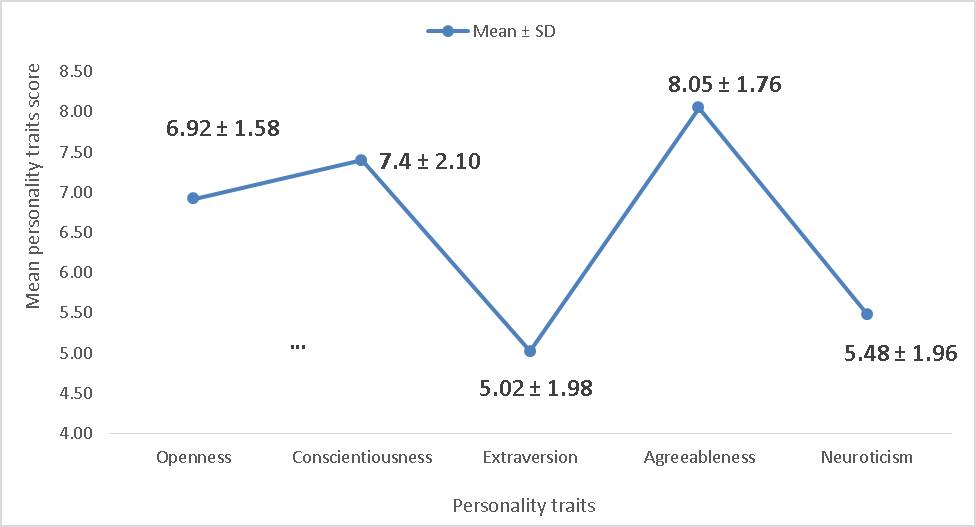Depression and Personality Traits among Undergraduates in a Southwest Nigerian Institution
ORIGINAL ARTICLE
Keywords:
depression, personality trait, students, Ogbomoso, NigeriaAbstract
Introduction
Individual differences associated with diverse emotional reactions may be significantly traced to genetic makeup which can influence the experience of mental health disorders such as depression. Previous studies on depression and personality traits have focused largely on individuals who have been diagnosed and are being managed for depression, however, little attention is being paid to undergraduates who are yet to be diagnosed especially in a developing country like Nigeria. Therefore, this study aimed to identify the relationship between depression and personality traits among university students in Oyo State, Nigeria.
Methods
The study design employed a cross-sectional survey which consisted of four hundred and thirty-six full-time undergraduates using Fisher’s sample size formula. The Big Five Inventory-10 (α=0.63) and Patient Health Questionnaire-9 (α=0.85) were self-report questionnaires used as instruments for the study. The study questionnaires were administered to the consented respondents during lecture-free periods. Data analysis was done using SPSS version 21 and the statistical significance level set at P <0.05.
Results
The personality trait with the highest mean in the study population was Agreeableness (8.05 ± 1.76) which was higher among female respondents; followed by Conscientiousness (7.40 ± 2.01) which was significantly higher in respondents without depressive symptoms compared to respondents who screened positive for depression (P = <0.005). However, Neuroticism was significantly lower in respondents without depressive symptoms compared to their counterparts who screened positive for depression.
Conclusion
Neuroticism, although not the prevailing personality trait among respondents in this study area, has a positive association with depression which was statistically significant. However, further study is required to corroborate this finding.



